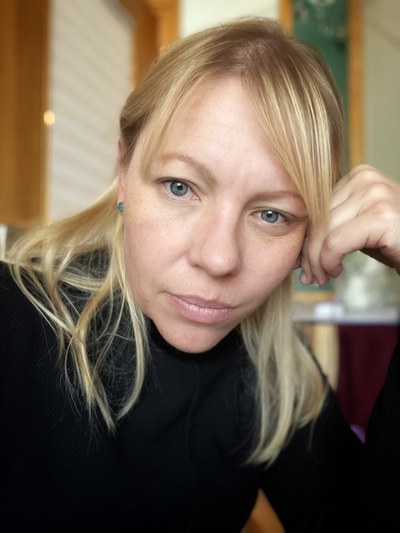Keynote Lecture "What can ‘post’ do? Thinking-with the post through memory, place and identity"
What can ‘post’ do? Thinking-with the post through memory, place and identity
Keynote Lecture with Danielle Drozdzewski, PhD (Stockholm University) at 10:45 on Wednesday, May 15
In a recent article forum, I was asked to respond to a manuscript that located the use of the word ‘post’ as a heuristic to better understand places we know with ‘post’ ascriptions, in that article’s case, post-apartheid (Houssay-Holzschuch, 2021). Given that I frequently use the term post in my own scholarship, and that my positionality situates me in/to (post)colonial Australia and (post)Socialist Poland, the opportunity to pause and reflect on the ‘post’, as powerful specific vocabulary, has had catalytic affect.
The post anchors a present-day entity to the past; it does so by opening, and holding open a space of hope. This hopeful space is cruelly optimistic (cf. Berlant, 2011), and it tethers identity/ies to places and events of the past with promise of unattachment too (Anderson, 2023). I concluded that article forum with a provocation drawn from Doreen Massey’s (1999) scholarship on space-time regime, by asking: ‘who uses that vocabulary most powerfully and to what effect?’ (Drozdzewski, 2021: 5)
Thoughts on that question comprise the subject matter of this lecture – what can the ‘post’ do? To think-with the power and effect of the ‘post’, I draw from a range of post examples: (post)conflict, (post)war, (post)Socialist, (post)national, (post)disaster. Then, using case study examples from Poland, Germany, The Netherlands, Thailand and Australia, I weave together the politics of identity, place and memory across spatial and temporal contexts to show how the post is used powerful as a lexicon, while being simultaneously sanguine and banal in its application.
References:
- Anderson, B. (2023) Forms and scenes of attachment: A cultural geography of promises. Dialogues in Human Geography, 13(3), 392-409.
- Berlant, L. (2011) Cruel Optimism, North Carolina: Duke University Press.
- Drozdzewski, D. (2021) The ‘post’ as powerful specific vocabulary. Dialogues in Human Geography, 11(3), 478-482.
- Houssay-Holzschuch, M. (2020) Keeping you post-ed: Space-time regimes, metaphors, and postapartheid, Dialogues in Human Geography, 11(3), 453-473.
- Massey, D. (1999) Imagining globalization: power-geometries of time-space, in A., Brah (ed) Global futures, London: Palgrave MacMillan, pp. 27-44.

Associate Professor Danielle Drozdzewski is a thought leader in cultural geography and memory studies, known for her research on the intersections of place, memory, and identity. Holding a PhD in Human Geography from UNSW Australia, Danielle moved to the Department of Human Geography at Stockholm University in 2018. She is currently the Editor-in-Chief of "Emotions, Space and Society".
Danielle specialises in the interactions of people and place, with specific expertise in memory, identity and migration. Her overarching research theme is the examination of the geographies of remembrance and identities. She has focused on how memories of culture and of place are integral to the formation and maintenance of identities, from the personal to the supranational. Allied to these investigations is the study of migration, through which she has explored what motivates people to move, the outcomes of such mobilities, to better understand interactions between people and places.
Among her work on everyday memorialisation and commemorative practices, is scholarship on how societies remember and commemorate historical event, conflicts and traumas. Additionally, her research on the spatial and affectual dimensions of cultural memories and identity practices addresses the challenges of thinking-with the body, using sensory methods and synthesising experiential knowledges to traditional approaches. Scholarship of note includes ‘Geographies of Commemoration: Anzac@100’ with Shanti Sumartojo and Emma Waterton, ‘Doing Memory Research: New Methods and Approaches’ with Carolyn Birdsall, and ‘Memory, Place and Identity: Commemoration and Remembrance of War and Conflict’ with Sara De Nardi and Emma Waterton.
As the co-founder of QualNotes, Danielle also plays a pivotal role in fostering innovative research methodologies and advancing qualitative inquiry within the academic community. This endeavour showcases a commitment to pushing the boundaries of scholarship and facilitating interdisciplinary dialogue and integrating digital methods to the social sciences and humanities.
